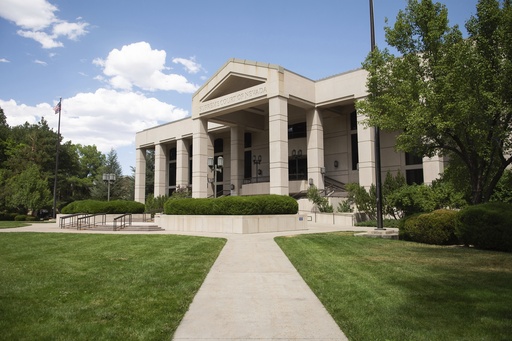RENO, Nev. (AP) — A conservative activist who embraced unproven election fraud claims has lost an appeal to the Nevada Supreme Court in his bid to oust a top county election official and others.
The high court on Wednesday upheld a lower-court judge’s earlier dismissal of Robert Beadles’ lawsuit, which claimed that Washoe County’s registrar of voters, the county manager and a county commissioner violated the state constitution by failing to respond to his complaints of fraud.
“Taking all the factual allegations in the complaint as true and drawing every inference in favor of Beadles, he can prove no set facts that would entitle him to relief as pleaded,” the Supreme Court ruled.
Beadles, who once briefly ran for Congress in California in 2010, has alleged that the election system is rife with “flaws and irregularities” that robbed him of his vote in 2020.
Beadles lost an earlier lawsuit in state court in 2022 that sought heightened observation of Washoe County’s vote-counting process. He has helped lead attempts to recall or otherwise oust numerous county officials since he moved to Reno from California in 2019.
Washoe County, which includes Reno-Sparks and the north shore of Lake Tahoe along the California line, is considered a swing county in the Western battleground state of Nevada. Registered voters are divided roughly in equal thirds among Democrats, Republicans and nonpartisans.
The Supreme Court’s ruling said Beadles misapplied a section of the Nevada Constitution guaranteeing the right to assemble and petition the Legislature in his most recent lawsuit, which sought the removal of Jamie Rodriguez, then-Washoe County registrar of voters; Eric Brown, county manager; and Alexis Hill, county commission chairwoman.
“There are no set of facts that could prove a violation of that constitutional right based on respondents’ failure to respond directly to Beadles’ allegations,” Chief Justice Lidia Stiglich wrote in the five-page ruling.
The ruling said state law permits a voter to file a complaint with the secretary of state’s office about election practices, but “these laws do not establish that respondents had a duty to respond to Beadles’ allegations.”
This website uses cookies so that we can provide you with the best user experience possible. Cookie information is stored in your browser and performs functions such as recognising you when you return to our website and helping our team to understand which sections of the website you find most interesting and useful.
